Illustration: Tran Thang |
People drink to drown their sorrows, but he uses alcohol to pour out his heart. For nearly 20 years, he has been lonely and regretful for not being able to protect his only daughter, who had gone missing. He punishes himself with patience in searching and waiting, because he believes that one day he and his daughter will be reunited.
Returning from the battlefield, he was over 30. It was too late for him to marry the girl who had waited for him for nearly a decade. It was also too late for him to have a daughter, all his love was poured into her, when her mother died due to difficult childbirth. Father and daughter were friends day and night, wherever he went, he took his daughter with him. Then one day, while taking his daughter to the district market to buy clothes and books to prepare for the new school year, he lost her.
“At first, I carried her on my back, but she insisted on getting off so she could go and look around. I told her to stay close to me, but she was naughty and skipped around, looking at this and that, making me run after her until I was out of breath. Then, in the middle of the crowded market, I turned back to the bookstore and told someone to pack up my notebooks and rulers, and when I came out, the girl had disappeared.”
Mr. Ba pulled Mrs. Ba's sleeve to wipe away her tears and explain.
Looking at the pain on the old face that had shriveled up, Hau felt his heart filled with sadness. If he were a girl, he would have been moved to hold his father's hand and say, "I am your Lien," and then stay as his son to have a father and a child, forgetting about his lonely life.
Hau's parents died in a railway accident when he was 14. The newspaper where Hau later applied to work mobilized and sponsored him to have the opportunity to continue his life and education through the school support program.
The first time Hau met Mr. Ba was when he was doing a report on the offshore fishing industry. At that time, Mr. Ba was a fellow fisherman, guarding thirty fishing boats day and night at the river mouths bordering the sea. When the fishing boat owner came to receive the spoils of war carrying the young journalist, the big waves came, the boat bobbed up and down, making Hau vomit and turn pale. The camera, which was invested with 3 months of salary, was thought to have been in the hospital for repair because of water splashes.
In the middle of the vast sea, Mr. Ba Tha pulled Hau up to the hut with a pole. Looking at the young man's face, who was still young and had never experienced much of life, he said curtly: "The writer is lying, the journalist is adding more." After giving the green light with the words "Ask whatever you want to ask", he lit two cigarettes and offered Hau one, saying it would make it easier to talk.
Hau didn't know how to smoke but he took a puff out of respect and coughed loudly. Mr. Ba threw the cigarette into the water and said bluntly: "If you don't know, just refuse. Why be so considerate? Do you think that people in your profession are so considerate that they bend the pen?"
Hau always remembered his words. Every time he sat down to write, he remembered what he had said: "You are a secretary of society. If you don't write, then don't. If you do write, then write properly and properly."
When the five-part report was approved and printed in five consecutive issues, when the newspaper was finished, Hau brought it back to the river mouth. Under the light of a candle burning in the middle of the ocean, Mr. Ba Tha squinted his eyes and read. As both a character and a loyal and demanding reader, he said softly: "It's okay to write, but if it's for people like us who are illiterate and do manual labor to read, the words should be simple and easy to understand."
After a few more visits, the journalist and the character Hau and Mr. Ba Tha became bosom friends. The loss of parents and children was also the reason why a young and an old person found a way to fill the void. Later, when he could no longer keep the bottom, Mr. Ba returned to the riverbank where the mangrove forest protected the sea to become a fisherman. Early in the morning, he went out with a fishing rod, and at noon, he returned with a can of catfish and silver pomfret, enough for him to have a comfortable life. And Hau's series of investigative reports "Making a living under the forest canopy" also started from him. For Hau, he is a character full of fate.
Gradually, they became close, and Mr. Ba considered Hau as his own son. No longer "Uncle Ba, Uncle Ba", now Hau called him "father" every time. And then, during their leisurely tea and wine sessions, the reporter got to hear him confide in him about many things.
The series “Finding My Child in a Thousand Ways” is a reportage about a father’s journey to find his child. For nearly 20 years, his tired feet have traveled to many lands. Whenever he earns enough money to cover the travel expenses, he packs up and sets off. He said: “I must find my child so that I can rest in peace when I die.”
Hau once said: "If you have any pictures of Lien when she was young, give them to me to post in the newspaper. Who knows, maybe we'll be lucky enough to find them." Mr. Ba took out a faded picture of the two of them taken during the last Tet holiday before his daughter went missing. Hesitantly, he asked: "Is it expensive to post like that? No matter how expensive it is, as long as we find Lien, I will try my best to pay the editorial office no matter how old I am."
Hau smiled and said that these three things did not cost much. When he handed over the carefully wrapped bag of change in a plastic bag for the next trip to find his son, Hau refused and told his father to keep it there. Only when the person who hired him to post the news about finding relatives would he take the money. That said, every month Hau spent his own money to print a small news item. He also used all his skills and connections to help him search, but time passed day after day, month after month, and there was still no news.
It is not impossible that his daughter Lien is no longer in this world. But as usual, Hau advised him never to give up hope. Because who knows…
***
The phone call came at night. Hau had just returned from his work. It was the voice of a middle-aged woman who said that the photo of the little girl in the father-looking-for-child notice looked very much like her adopted daughter when she found her nearly 20 years ago.
All the fatigue from the road seemed to have disappeared from Hau's mind. But he couldn't tell Mr. Ba about the matter until it was confirmed, in case it was not true, his father would be extremely disappointed. The woman who called said the address was too far away, all the way to Chau Island. Hau had been there once during a business trip to the islands at the end of the Southwest.
There was no electricity there, and the roads were difficult, so the means of communication were erratic. Fortunately, the Hau newspaper, which contributed to the fire, was quite famous, so every month it was transported to the island for the soldiers to read news and update the situation on the mainland.
That very night, Hau set out for the island with Mr. Ba Tha’s silver hair that he kept for the purpose of verifying his family. On the fishing boat drifting in the middle of the ocean surrounded by a vast blue sea, Hau’s heart was filled with excitement as if he was on his way to find a lost family member.
***
When standing in front of his tall, bright-eyed daughter, Mr. Ba Tha suddenly covered his face. Hau held the DNA test paper and said, "Dad, take a look." He sobbed, "No need. Because the little girl looks exactly like her mother when she was young."
And when he met the woman who had adopted Lien, he was even more shocked. Although her features were weathered by age, she looked exactly like his late wife. When she returned to the thatched house at the riverbank, Lien said that one day while wandering around the market, she saw a woman who looked exactly like her mother in the portrait.
So she forgot the advice to follow her father closely, as if hypnotized, she chased after the shadow of the Vietnamese traditional dress. She walked and walked, the woman crossed the ferry, she also crossed, and when she got off the ferry, she also got off. She asked the woman: "Are you my mother? Why don't you come back to live with your father?". The woman was stunned, and Lien suddenly realized that this was no longer the market where she followed her father to buy things and school supplies that morning. The woman knew that the child had mistaken her, and tried to lead her back the same way, but the world was not small, and Lien could not remember or know the way home.
They also searched for a long time but to no avail. Then, fate took them to Chau Island to live. The woman was kicked out by her husband's family because she had no children. The other day, thanks to reading an old newspaper given to her by the army, she accidentally saw the news and contacted Hau's phone number.
Mr. Ba Tha wiped his tears and patted Hau's shoulder: "You are my father and son's benefactor. Stay and have dinner with my father's family to celebrate our reunion."
As he led his daughter into the house to the altar of her deceased mother, Hau could still hear him mumbling: “It’s good that you’re back with me. From now on, I will never let you go again.”
Lien was moved, holding her father's hand with one hand and her foster mother's hand with the other. It was as if the two families were about to have a new family. Hau looked out to the river mouth, it was afternoon but the sunlight was still lingering, shining brightly on the sandbank.
HIEN DUONG
Source: https://baovinhlong.com.vn/van-hoa-giai-tri/tac-gia-tac-pham/202506/truyen-ngan-nang-phia-vam-song-688110b/


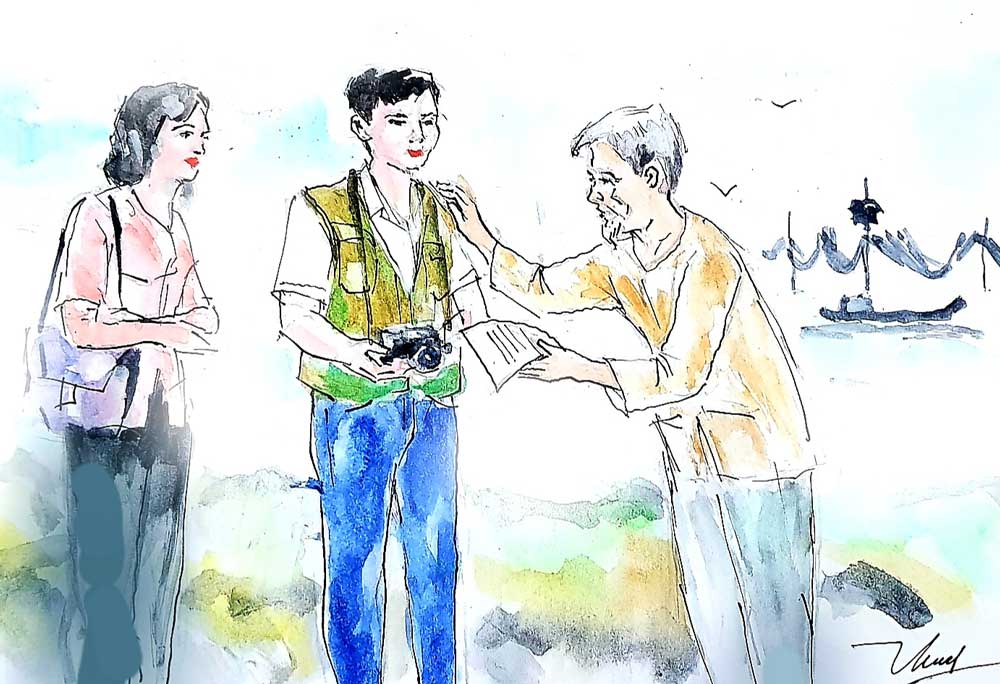

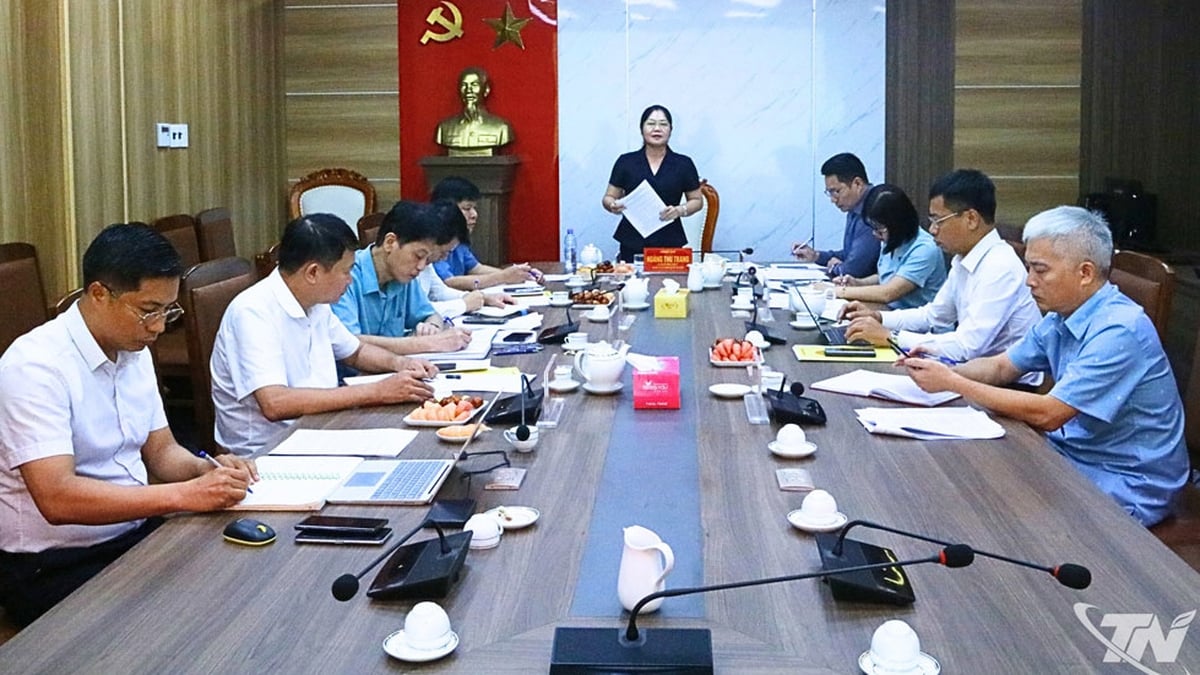



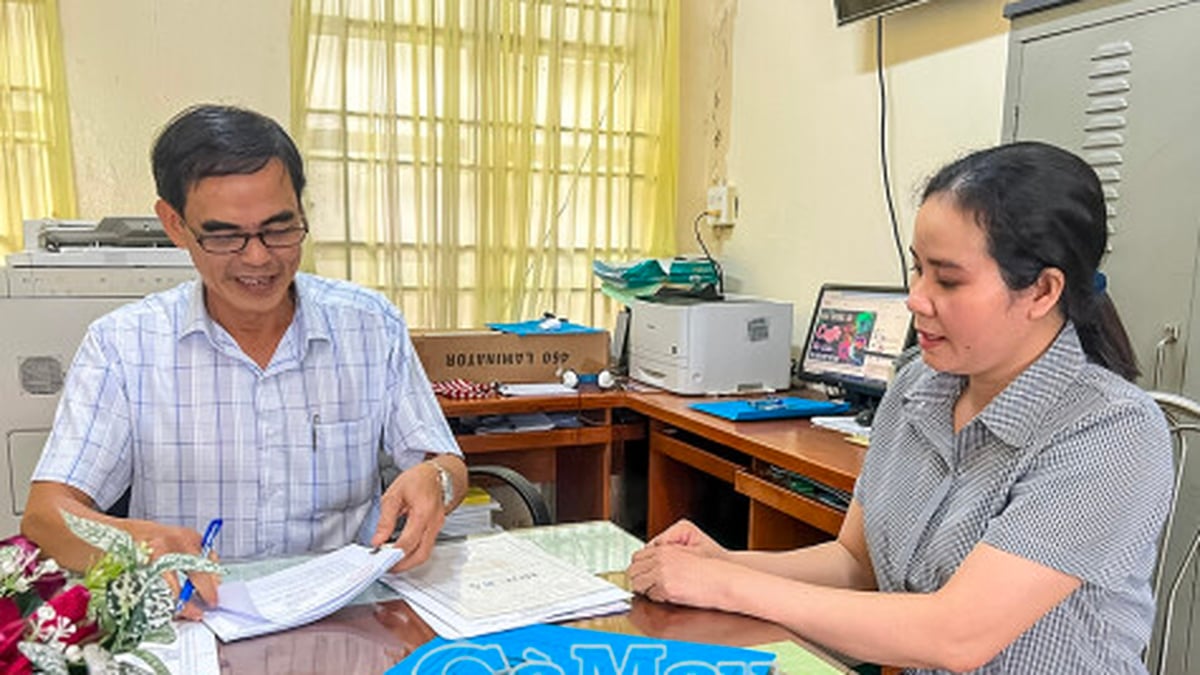


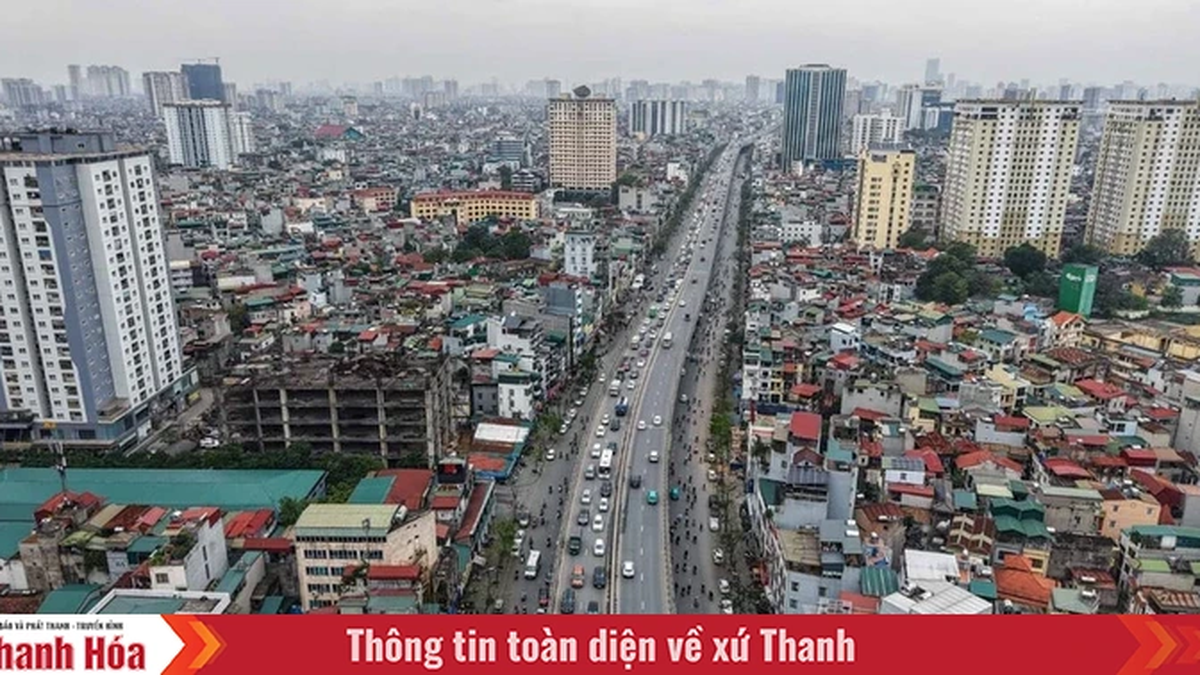


































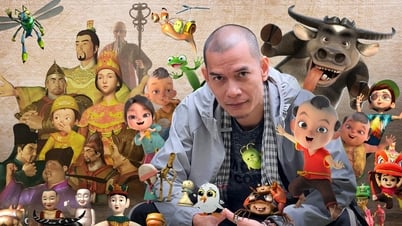







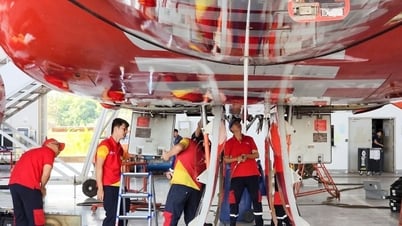








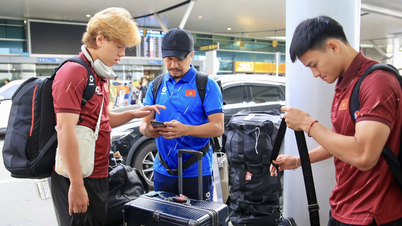





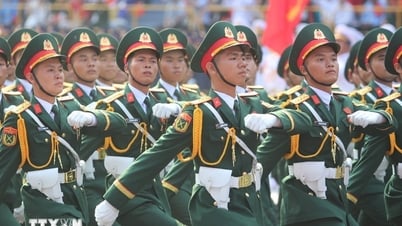



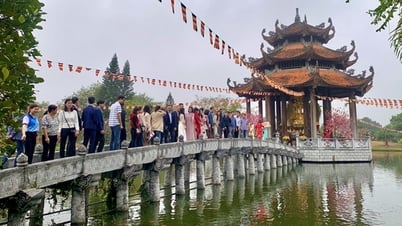


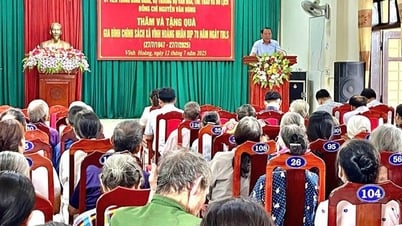

























Comment (0)